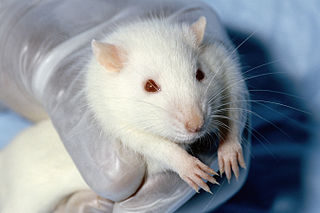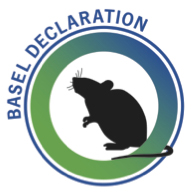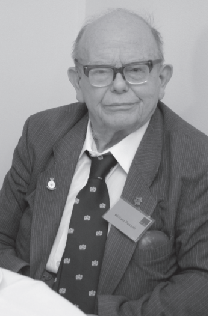
Animal testing, also known as animal experimentation, animal research, and in vivo testing, is the use of non-human animals in experiments that seek to control the variables that affect the behavior or biological system under study. This approach can be contrasted with field studies in which animals are observed in their natural environments or habitats. Experimental research with animals is usually conducted in universities, medical schools, pharmaceutical companies, defense establishments, and commercial facilities that provide animal-testing services to the industry. The focus of animal testing varies on a continuum from pure research, focusing on developing fundamental knowledge of an organism, to applied research, which may focus on answering some questions of great practical importance, such as finding a cure for a disease. Examples of applied research include testing disease treatments, breeding, defense research, and toxicology, including cosmetics testing. In education, animal testing is sometimes a component of biology or psychology courses. The practice is regulated to varying degrees in different countries.
An animal model is a living, non-human, often genetic-engineered animal used during the research and investigation of human disease, for the purpose of better understanding the disease process without the risk of harming a human. Although biological activity in an animal model does not ensure an effect in humans, many drugs, treatments and cures for human diseases are developed in part with the guidance of animal models. Animal models representing specific taxonomic groups in the research and study of developmental processes are also referred to as model organisms. There are three main types of animal models: Homologous, Isomorphic and Predictive. Homologous animals have the same causes, symptoms and treatment options as would humans who have the same disease. Isomorphic animals share the same symptoms and treatments, only. Predictive models are similar to a particular human disease in only a couple of aspects. However, these are useful in isolating and making predictions about mechanisms of a set of disease features.

Leslie Arnold Turnberg, Baron Turnberg is a British medical professional and an author of many publications and books related to the medical and health services fields. His experience extends to areas of research in these fields, and maintaining a clinical practice. He has published four books and some 150 articles on medical and scientific research. He has written two books on the history of Israel. ‘Beyond the Balfour Declaration; the 100 Year Quest for Israeli-Palestinian Peace’ was published in 2017 and ‘Mandate; Britain’s Palestinian Burden, 1919-1939’ published May 2021.
Gillian Rose Langley is a British scientist and writer who specialises in alternatives to animal testing and animal rights. She was, from 1981 until 2009, the science director of the Dr Hadwen Trust for Humane Research, a medical research charity developing non-animal research techniques. She was an anti-vivisection member of the British government's Animal Procedures Committee for eight years, and has worked as a consultant on non-animal techniques for the European Commission, and for animal protection organizations in Europe and the United States. Between 2010 and 2016 she was a consultant for Humane Society International.

Alternatives to animal testing are the development and implementation of test methods that avoid the use of live animals.

The Boyd Group is a Britain-based, independent think tank considering issues relating to animal testing.
Europe PubMed Central is an open-access repository which contains millions of biomedical research works. It was known as UK PubMed Central until 1 November 2012.
Animal ethics is a branch of ethics which examines human-animal relationships, the moral consideration of animals and how nonhuman animals ought to be treated. The subject matter includes animal rights, animal welfare, animal law, speciesism, animal cognition, wildlife conservation, wild animal suffering, the moral status of nonhuman animals, the concept of nonhuman personhood, human exceptionalism, the history of animal use, and theories of justice. Several different theoretical approaches have been proposed to examine this field, in accordance with the different theories currently defended in moral and political philosophy. There is no theory which is completely accepted due to the differing understandings of what is meant by the term ethics; however, there are theories that are more widely accepted by society such as animal rights and utilitarianism.

Tatsuji Nomura M.D., Ph.D. was a pioneer in the development of laboratory animals with the aim of assuring reproducibility of experimental results in medical research. He was Director of the Central Institute for Experimental Animals (CIEA), Japan
Fund for the Replacement of Animals in Medical Experiments (FRAME) is a charity based in Nottingham, UK. FRAME promotes consideration of the ethical and scientific issues involved in the use of laboratory animals for medical research, and the adoption of the Three Rs strategy of alternatives to animal testing.

The Basel Declaration is a call for greater transparency and communication on the use of animals in research. It is supported by an international scientific non profit society, the Basel Declaration Society, a forum of scientists established to foster the greatest dissemination and acceptance of the Declaration, and the dialogue with the public and stakeholders.

In New Zealand, animals are used in many situations for research, testing and teaching – commonly referred to as RTT.

The Three Rs (3Rs) are guiding principles for more ethical use of animals in product testing and scientific research. They were first described by W. M. S. Russell and R. L. Burch in 1959. The 3Rs are:
- Replacement:methods which avoid or replace the use of animals in research
- Reduction: use of methods that enable researchers to obtain comparable levels of information from fewer animals, or to obtain more information from the same number of animals.
- Refinement: use of methods that alleviate or minimize potential pain, suffering or distress, and enhance animal welfare for the animals used.
The Universities Federation for Animal Welfare (UFAW), is an animal welfare science society. It is a UK-registered scientific and educational charity.
ALTEX: Alternatives to Animal Experimentation is a quarterly peer-reviewed scientific journal covering alternatives to animal experimentation and related issues of bioethics, seeking to promote the replacement, reduction, and refinement of animal use in research. It was originally published in German and established in 1984 as ALTEX: Alternativen zu Tierexperimenten and is published by Springer Spektrum on behalf of the Swiss Society ALTEX Edition.

William Moy Stratton Russell, also known as Bill Russell, was a British zoologist and animal welfare worker. He was best known for writing, along with R. L. Burch (1926-1996) The Principles of Humane Experimental Technique (1959), a landmark in the humane use of animals in research, education and testing. Russell and Burch introduced the concept of the Three Rs in the scientific community and provided a blueprint for combining animal welfare considerations and quality of research.
Valerie Speirs is a Professor of Molecular Oncology at the University of Aberdeen. Her research aims to identify biomarkers of breast cancer to inform diagnosis and treatment.

Jane Louise Hurst is the William Prescott Professor of Animal Science at the University of Liverpool. She is Head of Mammalian Behaviour & Evolution. She studies scent communication between mammals, as well as animal welfare and pest control. She served as the president of the Association for the Study of Animal Behaviour from 2010 to 2012.
Sex as a biological variable (SABV) is a research policy recognizing sex as an important variable to consider when designing studies and assessing results. Research including SABV has strengthened the rigor and reproducibility of findings. Public research institutions including the European Commission, Canadian Institutes of Health Research, and the U.S. National Institutes of Health have instituted SABV policies. Editorial policies were established by various scientific journals recognizing the importance and requiring research to consider SABV.
Judy MacArthur Clark is a British veterinary surgeon, and former President of the Royal College of Veterinary Surgeons. She has held government posts in the regulation of veterinary medicine.







